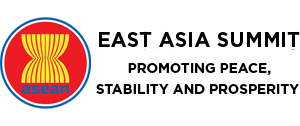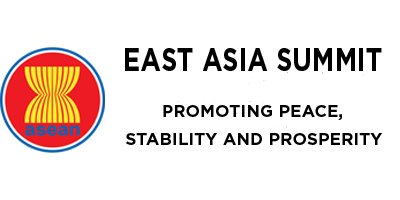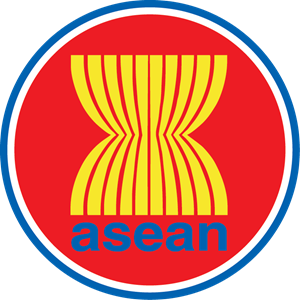MARITIME
9.1 Promote sustainable and responsible fisheries management and fishery development including long-term conservation and sustainable use and management of fish stocks as well as encourage the assessment and implementation of the Ecosystem Approach to Fisheries Management (EAFM);
9.2 Promote cooperation on combating marine plastic pollution to effectively establish and implement a coherent and coordinated regional approach, focused on prevention and management of waste and litter and promotion of investments in waste management infrastructure also through cooperation with the private sector;
9.3 Promote technical and scientific cooperation as well as capacity building based on EAS participating countries' common needs and interest in order to foster the sustainable coastal and marine environment and economic cooperation and address transboundary marine and costal pollution damage resulting from land-based and sea-based sources of marine debris in the region;
9.4 Enhance cooperation in building coastal resilience for disaster risk reduction as mandated in AADMER through relevant ASEAN-Ied mechanisms such as AHA Centre;
9.5 Promote economic development cooperation and sustainable marine resources management, through encouraging maritime and marine investment, sustainable marine tourism; and marine and fisheries industry development including port and logistics management, and safe and environmentally-sound ship building, ship repairing and ship breaking;
9.6 Ensure that all countries enjoy and exercise freedom of navigation and overflight in accordance with international law, as reflected in the 1982 UNCLOS;
9.7 Promote maritime security and safety through dialogue and cooperation in accordance with the relevant international legal instruments and guidelines;
9.8 Promote maritime security and safety through confidence building and preventive measures, such as promoting international efforts in the fight against piracy on the high seas and armed robbery against ships, and strengthening by the involved countries of the Indian Ocean Rim Association (IORA), North Pacific Coast Guard Forum (NPCGF), Western Pacific Naval Symposium (WPNS), Head of Asian Coast Guard Agency Meeting (HACGAM), Rim of the Pacific (RIMPAC) Exercise, Regional Cooperation Agreement on Combating Piracy and Armed Robbery against Ships in Asia (ReCAAP), ASEAN Regional Forum (ARF) and the ASEAN Defence Minister's Meeting Plus (ADMM Plus);
9.9 Prevent and manage accidents and incidents at sea by, among others, developing the region's capacity to conduct Search and Rescue operations for people and vessels in distress at sea; enhancing hotline communications between relevant focal points, in consultation with the relevant Search and Rescue Authorities, national maritime agencies and authorities; enhancing coordination through the establishment of contact groups, sharing of information and sharing of best practice, dialogue and joint exercises on maritime safety, including Search and Rescue as appropriate; in accordance with current established IMO conventions;
9.10 Promote confidence building measures and enhancing cooperation to promote peace, stability and regional security through other relevant ASEAN-Ied mechanisms, including ADMMPlus, and ARF by convening regional maritime workshops and exercises that promote practical cooperation, transparency and common understanding of the rule of law at sea;
9.11 Promote cooperation and coordination between maritime law enforcement agencies such as among Coast Guards and other relevant agencies;
9.12 Strengthen cooperation in addressing transboundary challenges;
9.13 Increase efforts to develop maritime connectivity in line with and in support of the vision and goals of the Master Plan on ASEAN Connectivity and its successor documents, and develop sustainable and resilient infrastructure, logistics and port management, navigation cooperation to promote economic growth that will not only contribute to narrowing development gaps but also promote regional integration and the community building process, as well as better mobility of people, skilled labour, goods and services;
9.14 Promote cooperation between research institutions on maritime issues, including through capacity-building, joint research, exchange of expertise and best practices, collaborative activities/programs;
9.15 Promote cooperation to improve the management of transboundary fishing and traceability of fishery products;
9.16 Explore or undertake relevant cooperative activities, including taking action against cases of Illegal, Unreported and Unregulated (IUU) fishing and illegal activities, in accordance with existing international and national law, and instruments, noting the pending comprehensive and durable settlement of territorial and jurisdictional disputes;
9.17 Facilitate sharing, exchange and compilation of statistics and information on fisheries among interested countries;
9.18 Improve food security and nutrition through diversifying food sources from fisheries and strengthening the quality and variety of food fish production and improving the food value chains;
9.19 Promote good aquaculture practices to minimize the negative effects on natural resources and reduce greenhouse gases;
9.20 Utilise the role of the Expanded ASEAN Maritime Forum (EAMF) as an effective platform to constructively engage in open and substantive dialogue;


